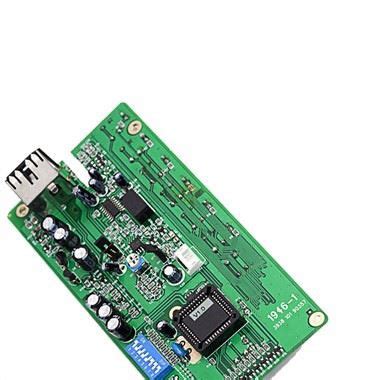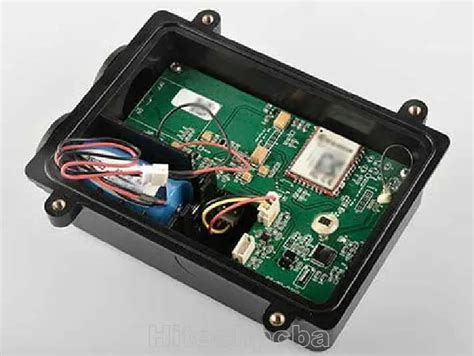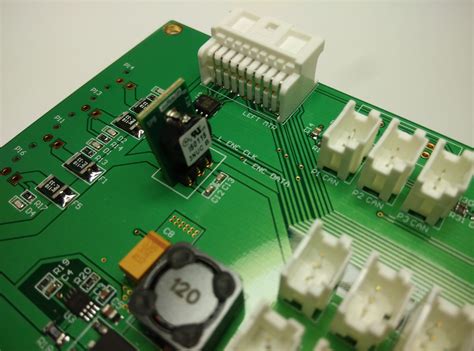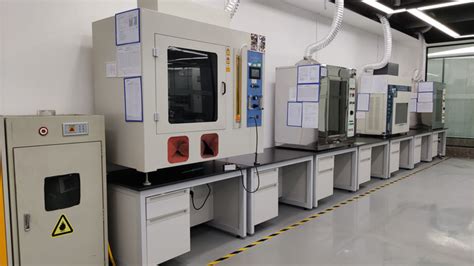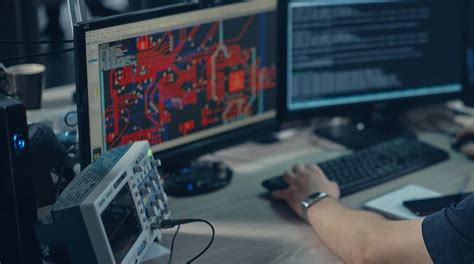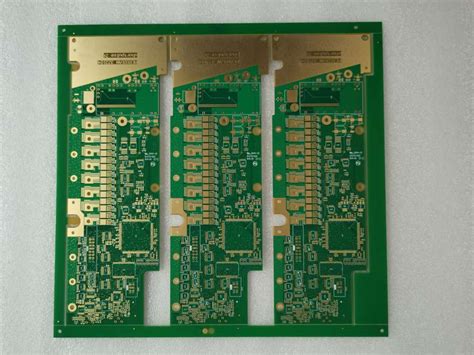Revolutionizing Automotive Performance: The Impact of PCB Assembly
Key Takeaways
In today’s rapidly evolving automotive industry, PCB assembly is at the forefront of innovation, significantly enhancing vehicle capabilities and performance. The incorporation of PCBA in vehicles has brought numerous benefits, making cars smarter, safer, and more efficient. One key takeaway is the enhancement in vehicle efficiency through advanced PCB technology, which allows for better fuel management and power distribution. Additionally, precision engineering has enabled more reliable safety features, improving overall road safety. Furthermore, PCBs are crucial in the development of modern car technology, supporting features such as autonomous driving and sophisticated infotainment systems. The advancements in energy efficiency and sustainability offered by state-of-the-art PCBA techniques are paving the way for greener automotive solutions. Both manufacturers and consumers are experiencing significant gains from these improvements, with vehicles becoming more reliable and cost-effective to produce and operate. These developments hint at a future where automotive technology continues to evolve at an unprecedented pace.
Introduction to Automotive PCB Assembly
“Revolutionizing Automotive Performance: The Impact of PCB Assembly” delves into the transformative power of pcb assembly in the automotive industry. Modern vehicles are equipped with numerous advanced electronic systems that rely heavily on PCBA. This technology plays a pivotal role in enhancing various aspects of vehicular performance, from efficiency to safety.
Automotive pcb assembly involves the integration of various electronic components onto a single board, utilizing precision engineering and cutting-edge manufacturing techniques. This amalgamation results in smarter, more dependable, and energy-efficient vehicles. The use of advanced PCBA ensures that each component functions optimally, contributing to the overall performance and reliability of the vehicle.
One significant impact of automotive PCB assembly is its contribution to vehicle efficiency. With components like engine control units, sensors, and infotainment systems seamlessly integrated on a single board, vehicles can operate more smoothly and efficiently.
In terms of safety features, modern PCBA has enabled the development of sophisticated driver-assistance systems (ADAS). Technologies such as adaptive cruise control, lane-keeping assistance, and automatic emergency braking are now possible due to advancements in pcb assembly.
“Modern PCBs are a cornerstone in automotive innovation,” says an industry expert. “Their role in enhancing vehicle performance is undeniable.”
Moreover, the precision required in manufacturing these PCBs pushes the boundaries of what is possible within the industry. This precision leads to improved reliability and durability, which are crucial for maintaining high standards in automotive safety and performance.
In summary (though not directly stated here): automotive pcb assembly signifies a leap forward in both technology and manufacturing within the automotive sector. This integrated approach offers unprecedented improvements that benefit both manufacturers looking for efficient production solutions and consumers seeking reliable, high-performance vehicles for their daily commute or adventures alike.
| Key Aspect | Role of PCB Assembly |
|---|---|
| Efficiency | Enhances overall vehicle performance through integration |
| Safety | Facilitates advanced driver-assistance systems |
| Reliability | Ensures long-term durability through precision engineering |
By understanding these facets, manufacturers can appreciate how fundamental PCBA is to modern automotive design and consumers can enjoy safer, more efficient driving experiences.
Enhancing Vehicle Efficiency through PCB Technology
The integration of PCB assembly (PCBA) into the automotive industry has brought remarkable advancements in vehicle efficiency. By enabling precise control over various electronic systems, PCBs have optimized the performance of engines, transmissions, and fuel management systems. This precision not only enhances overall vehicle performance but also contributes to significant fuel savings. Sophisticated PCBA techniques allow for the development of lightweight yet robust circuit boards, which result in reduced weight and improved fuel efficiency. Furthermore, the use of advanced materials and manufacturing processes ensures that automotive PCBs can withstand extreme conditions, providing durability and reliability over the vehicle’s lifetime. The combination of these factors leads to a more efficient and sustainable driving experience, benefiting both manufacturers and consumers by reducing operational costs and environmental impact.
Advancements in Safety Features via PCB Assembly
The automotive PCB assembly has significantly elevated the standards of vehicle safety, leading to smarter and more reliable driving experiences. Modern PCBA innovations are at the core of numerous advanced safety features, including adaptive cruise control, lane departure warning systems, and automatic emergency braking. These systems rely on precision engineering and sophisticated sensors integrated within the PCB assembly, ensuring real-time data processing and immediate response to potential hazards. The miniaturization of components and the enhancement of electrical connectivity within PCBs allow for faster signal transmission and more robust performance under various driving conditions. Furthermore, the improved durability and reliability of PCBs contribute to maintaining the integrity and functionality of critical safety features over time, which is crucial for protecting both drivers and passengers. In essence, the strides made in automotive PCB assembly are not just enhancing vehicle performance but are also pivotal in safeguarding lives by integrating intelligent safety mechanisms that react swiftly and accurately during emergencies.
Precision Engineering in Automotive PCB Manufacturing
Precision engineering plays a critical role in the automotive PCB assembly process, ensuring that each component meets the highest standards of accuracy and reliability. By incorporating cutting-edge technologies such as automated optical inspection (AOI) and X-ray inspection, manufacturers can achieve unparalleled levels of quality control. These advanced techniques help detect even the minutest defects, ensuring that only flawless PCBAs make it into vehicles. Moreover, the use of robotics and computer-aided design (CAD) software in the assembling process allows for greater consistency and precision, enabling high-volume production without compromising on quality. This meticulous attention to detail not only enhances the overall performance of vehicles but also significantly boosts their safety and durability. Precision engineering is truly at the heart of modern automotive innovation, providing a robust foundation for smarter, more reliable cars of the future.
Smart Vehicles: The Role of PCBs in Modern Car Technology
In the realm of smart vehicles, PCB assembly (PCBA) has ushered in a new era of innovation and performance. Modern cars are now equipped with a plethora of electronic systems, from advanced driver-assistance systems (ADAS) to infotainment units, all of which rely heavily on PCBs. These intricate circuit boards manage and regulate various functionalities, ensuring that vehicles are safer, more interactive, and more efficient than ever before. The precision engineering involved in creating these PCBs aids in reducing power consumption and enhancing signal integrity, resulting in a seamless integration of hardware and software. As the automotive industry continues to evolve, the reliance on robust PCB assemblies will only increase, driving further advancements and enabling smarter, more reliable vehicles for the future.
Energy Efficiency and Sustainability Improvements
In the quest for energy efficiency and sustainability, automotive PCB assembly plays an integral role in modern vehicle design. By incorporating PCBs designed for optimal power management, automakers can significantly reduce the energy consumption of various vehicle systems. These advanced PCBAs facilitate more efficient power distribution to the engine, lighting systems, and infotainment units, thereby lowering fuel or electricity consumption. Moreover, innovations in PCB technology enable the integration of renewable energy sources such as solar panels into electric vehicles, pushing the envelope of sustainable automotive solutions. The meticulous precision engineering involved in creating these components also means fewer emissions and reduced environmental impact during both manufacturing and operation. By supporting smarter and more sustainable vehicle designs, automotive PCBs are a key driver in the industry’s shift toward a greener future.
Impact on Manufacturers and Consumers
The influence of automotive PCB assembly on both manufacturers and consumers is profound. For manufacturers, integrating advanced PCB technology into vehicles streamlines production processes and reduces costs through more efficient designs and reliable components. The precision inherent in PCB assembly ensures fewer defects and enhances the overall quality of the finished product, ultimately leading to higher customer satisfaction. For consumers, the benefits are multifaceted: vehicles equipped with state-of-the-art PCBA deliver superior performance, increased safety features, and improved energy efficiency. This results in a more reliable and enjoyable driving experience. Furthermore, advancements in PCB technology contribute to the development of smarter vehicles, equipped with enhanced connectivity and autonomous capabilities that offer convenience and peace of mind. The ongoing evolution in this field underscores a future where both manufacturers and consumers experience unprecedented levels of innovation and reliability in automotive technology.
Future Trends in Automotive PCB Assembly
The future of automotive PCB assembly promises groundbreaking advancements that will redefine how vehicles are designed, constructed, and operated. One of the foremost trends is the integration of Artificial Intelligence (AI) and Machine Learning algorithms into PCBAs, enabling vehicles to become more autonomous and adaptive to changing conditions. Moreover, the move towards miniaturization and higher component density is anticipated, allowing more complex circuits and enhanced functionalities within the same or even smaller footprints. Innovations in flexible PCBs will also play a crucial role, offering new possibilities for integrating electronics into unconventional shapes and spaces within the vehicle architecture.
Furthermore, as vehicles become increasingly connected through the Internet of Things (IoT), automotive PCBs must support robust communication protocols and enhanced cybersecurity features to protect against potential threats. This means that future PCB assemblies will not only need to be highly reliable but also secure from external attacks.
Sustainability also continues to be a priority, driving the development of environmentally friendly materials and energy-efficient manufacturing processes in PCB assembly. As electric vehicles gain popularity, advancements in power electronics PCBs are expected to support better energy management and longer battery life.
In summary, as we look ahead, precision engineering combined with these innovative trends will ensure that automotive PCB assemblies remain at the forefront of technological evolution, facilitating smarter, safer, and more efficient vehicles for generations to come.
Conclusion
In conclusion, the transformative power of automotive pcb assembly (PCBA) is reshaping the automotive landscape in unprecedented ways. By leveraging state-of-the-art technologies, PCBA is driving significant advancements in vehicle efficiency, safety, and overall performance. Precision engineering and advanced manufacturing techniques have enabled the production of more reliable, smarter, and energy-efficient vehicles, pushing the boundaries of modern car technology. These developments are not only beneficial for manufacturers who can deliver higher quality products but also for consumers who enjoy safer, more efficient driving experiences. As we look towards the future, it is clear that automotive pcb assembly will play a pivotal role in the continued evolution of the industry, paving the way for groundbreaking innovations and sustainable solutions.
FAQs
Q: What is PCB assembly, also known as PCBA?
A: PCB assembly, or PCBA, refers to the process of soldering or assembling electronic components onto a printed circuit board (PCB). It includes various stages such as surface-mount technology (SMT), through-hole technology (THT), and the final testing of assembled boards.
Q: How does automotive PCB assembly improve vehicle efficiency?
A: Automotive PCBs play a critical role in optimizing vehicle efficiency by supporting advanced engine management systems, electric drive controls, and energy-efficient lighting systems. They ensure precise control and communication between various vehicle components, effectively reducing energy consumption and enhancing overall performance.
Q: What advancements have been made in safety features through PCB assembly?
A: The latest PCB technologies have revolutionized safety features by enabling the integration of sophisticated systems such as adaptive cruise control, automatic emergency braking, lane departure warnings, and advanced driver-assistance systems (ADAS). These innovations rely on precise and reliable PCBs to function correctly.
The impact of pcb assembly on modern automotive technology cannot be overstated. By utilizing precision engineering and advanced manufacturing techniques, today’s PCBs are more efficient, reliable, and capable of supporting the next generation of smart vehicles.
Discover More About Automotive PCB Assembly
To delve deeper into how cutting-edge automotive PCB technologies are reshaping the future of vehicles, please click here.

